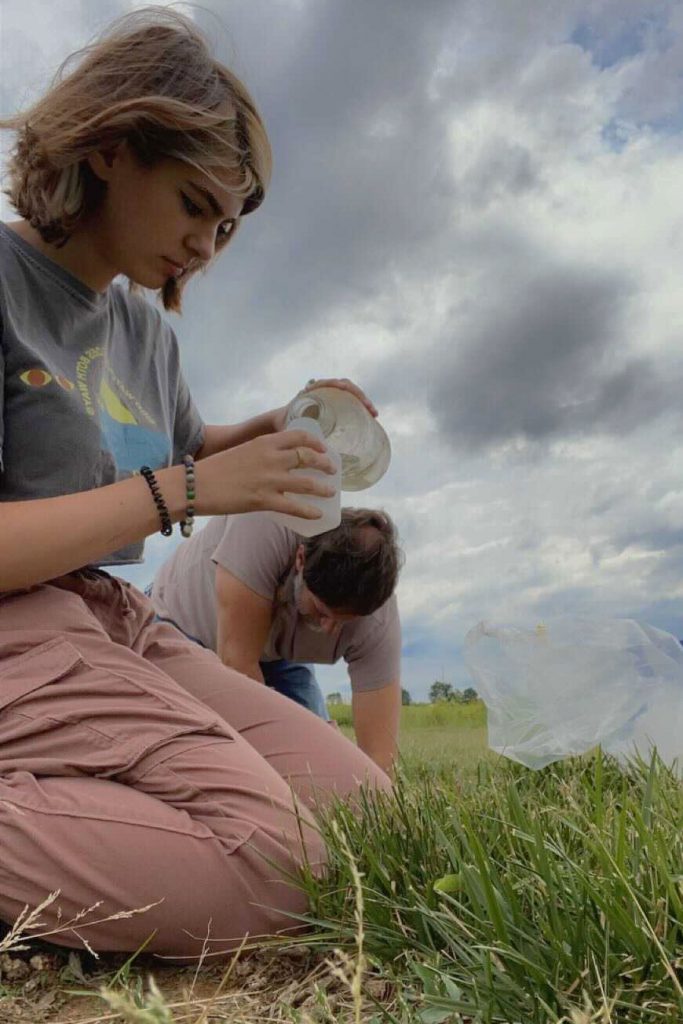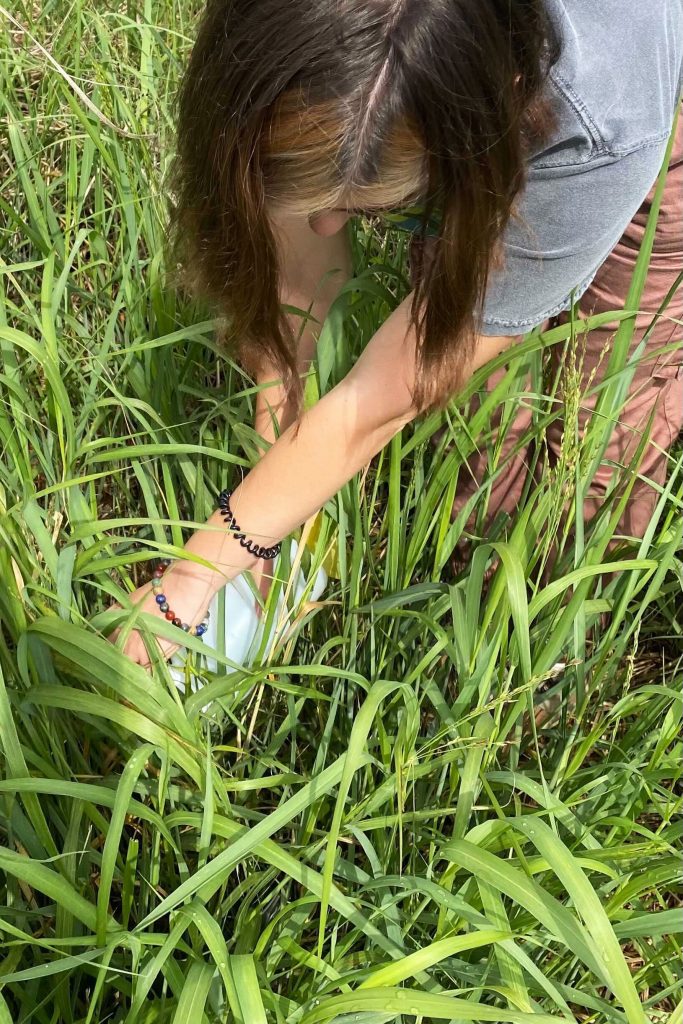In anticipation of spending the summer in a research lab, Katherine Egeler had some uncertainties.
“I was really nervous that I would get to my lab and I would not know how to do anything,” says Katherine. “I don’t really know why I was so nervous about that because I like science…but I was nervous I would be really bad at everything in my lab.”
Gaining confidence in the lab
Katherine is in the Undergraduate Research Apprenticeship program, or URA, at W.K. Kellogg Biological Station, working in the Hamilton Lab. Their day-to-day work this summer includes creating bromide solutions in the lab before heading out to the Great Lakes Bioenergy Research Center—GLBRC—to water the switchgrass plots. Bromide is an anion that results from the bonding of the elements bromine and sodium.
After watering the switchgrass, Katherine and their mentor usually go to different GLBRC and Long-term Ecological Research—LTER—plots to collect samples from lysimeters, which are soil-water-collecting devices that use a vacuum to transport water, from tubes under plots in the LTER and GLBRC to bottles on the side of the plots. Then, in the lab, they run tests on the samples they collected.
Katherine’s research involves checking a proof of concept for a future experiment. They are testing different concentrations of bromide on switchgrass to see if there’s a certain toxicity level that will kill the switchgrass. They are also trying to determine the rate uptake for switchgrass, or how much bromide it will take in. This work is important because it will assist a future research project.
“It’s going to help in a future lab, so it will tell them how much bromide to use in their tracer,” says Katherine.
Their summer involves a lot of lab work, a fear that they were able to overcome with the help of their mentor.
“My mentor, David Weed, was super helpful in quelling a lot of my anxieties about lab work,” says Katherine. “During my first few days, he made sure that I knew how to do all of our regular tasks and walked me through how to use all of the lab equipment I would need for my bromide tracer experiment.”
Katherine, a rising sophomore at Michigan State University’s College of Natural Science, majors in genomics and molecular genetics with a minor in bioethics . Although their research at KBS this summer is not directly in their field of choice, they’re still gaining valuable experiences.
“I like how I learn a new thing every single day,” says Katherine. “I’m in a chemistry lab right now and I’m usually not used to chemistry, but I feel like it’s really preparing me for the future.”
According to Katherine, they don’t plan on entering the biogeochemistry field in the future, but the skills they’ve learned from its application in their lab will definitely be helpful: for example, using ion chromatography to measure the concentration of anions in water samples.
“While in the future, I likely won’t need to analyze water samples, ion chromatography is used in many other fields I’m interested in pursuing, including medicinal research,” says Katherine. “Some of the more general skills I’ve learned from my biogeochemistry lab—how to prevent sample contamination, correctly use common lab instruments, and use Excel for data analysis—will also likely be helpful for whatever future work I do.”
Exploring a different field
Gaining experience in a different field was part of Katherine’s decision to come to KBS this summer.
“I thought it would be cool to do something ecological research-wise,” says Katherine. “I’ve never really done anything with ecology and I’m pretty passionate about the environment, so I wanted to try something like that out.”
Even as summer begins to wind down, Katherine says there are still plenty of reasons to look forward.
“I’m excited to keep meeting new people,” they say. “I’m also excited to actually get data from my experiment, because I have no clue if it’s working right now. I’m just putting water in switchgrass.
“Probably that the most.”
~~~~~~~~~~~~~~~~~~~~
Katherine was interviewed by Abigail Comar, the 2021 KBS external communications intern. Abigail is majoring in fisheries and wildlife and journalism at Michigan State University, with concentrations in conservation biology, environmental science and health reporting.



A legacy of conservation; a commitment to sustainability.
3700 E. Gull Lake Drive
Hickory Corners, MI 49060
(269) 671-5117
info@kbs.msu.edu